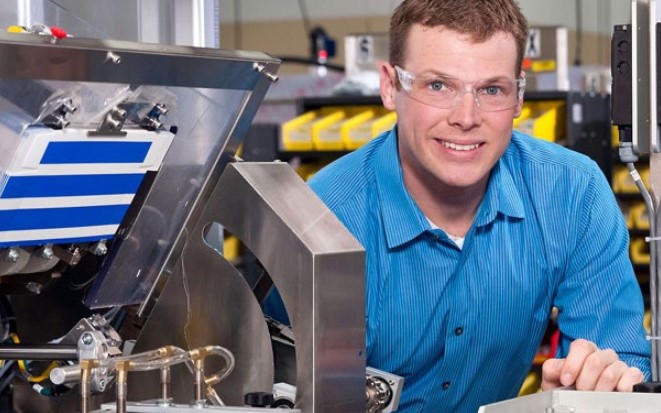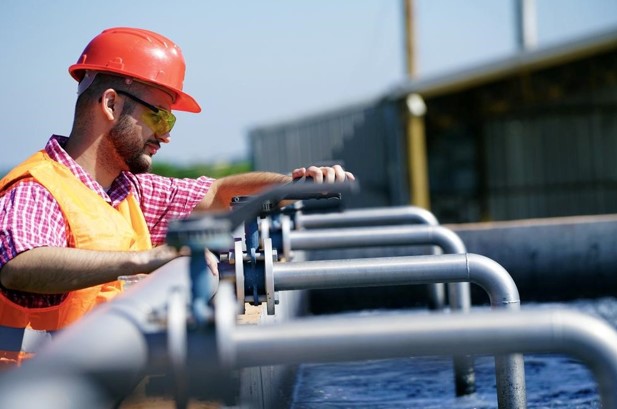Manufacturing Engineering: Navigating the Realm of Innovation and Sustainability

Manufacturing engineering, often referred to as production engineering, plays a pivotal role in the heart of industries. It involves the application of engineering principles and techniques to the process of manufacturing products, ensuring efficiency, quality, and innovation. Let’s delve into the world of manufacturing engineering, exploring its historical evolution, current trends, challenges, and the intersection with sustainability.
Historical Overview
The roots of manufacturing engineering trace back centuries, evolving from simple craftsmanship to sophisticated industrial processes. The advent of the Industrial Revolution marked a turning point, with the introduction of machinery and the mechanization of production. Over time, manufacturing engineering has witnessed remarkable milestones, shaping the landscape of modern industry.
Role of a Manufacturing Engineer
Manufacturing engineers play a crucial role in the production cycle. From designing efficient workflows to optimizing production processes, their responsibilities span a wide spectrum. Collaborating closely with design, research, and development teams, they ensure that products are not only manufacturable but also meet the highest standards of quality.
Emerging Technologies in Manufacturing Engineering
In the era of Industry 4.0, manufacturing engineering is undergoing a transformative phase. Automation, robotics, and artificial intelligence are revolutionizing the way products are designed and manufactured. These technologies not only enhance precision and speed but also open new possibilities for customization and flexibility in production.
Sustainable Practices in Manufacturing Engineering
As industries embrace sustainability, manufacturing engineering plays a vital role in reducing environmental impact. Green manufacturing initiatives focus on optimizing processes, minimizing waste, and adopting eco-friendly materials. This shift towards sustainability not only aligns with global environmental goals but also enhances the long-term viability of businesses.
Challenges Faced by Manufacturing Engineers
The rapid pace of technological advancements poses challenges for manufacturing engineers. Staying updated with the latest technologies and ensuring their seamless integration into existing processes is a constant struggle. Global competition adds another layer of complexity, urging engineers to find innovative solutions to stay ahead in the market.
Educational Requirements and Career Path
Becoming a manufacturing engineer requires a solid educational foundation in engineering disciplines. From a bachelor’s degree to advanced studies, the journey involves continuous learning. The career path is dynamic, offering opportunities for specialization and advancement, with roles ranging from process engineers to manufacturing managers.
Case Studies
Examining successful manufacturing engineering projects provides insights into best practices. From the development of groundbreaking products to the optimization of production lines, case studies offer valuable lessons. Analyzing failures is equally crucial, highlighting the importance of thorough planning and risk management in manufacturing processes.
Future Trends in Manufacturing Engineering
Looking ahead, the future of manufacturing engineering holds exciting possibilities. Innovations such as 3D printing, nanotechnology, and smart manufacturing are set to redefine the industry. Adaptive manufacturing systems will become more prevalent, allowing real-time adjustments to meet changing demands efficiently.
Importance of Continuous Learning
In a field driven by technological advancements, continuous learning is paramount. Manufacturing engineers must stay abreast of the latest trends and tools to remain effective. Embracing a mindset of lifelong learning ensures adaptability and positions professionals as leaders in the dynamic landscape of manufacturing engineering.
The Intersection of Manufacturing Engineering and Sustainability
The synergy between manufacturing engineering and sustainability is increasingly evident. Adopting sustainable practices, such as recycling, waste reduction, and energy efficiency, contributes to both environmental well-being and the longevity of manufacturing processes. The circular economy principles underscore the importance of minimizing resource consumption and maximizing reuse.
Global Impact of Manufacturing Engineering
Beyond individual companies, manufacturing engineering has a significant impact on global economies. It drives innovation, creates job opportunities, and fosters economic growth. Addressing global challenges, such as resource scarcity and climate change, requires a collaborative approach, with manufacturing engineering playing a crucial role in finding solutions.
Advancements in Materials Science
Materials science advancements influence manufacturing processes by providing innovative materials with enhanced properties. From lightweight alloys to smart materials, the choices available to manufacturing engineers impact product performance, durability, and sustainability. Staying informed about material science breakthroughs is integral to making informed decisions in the manufacturing realm.
Collaboration in the Manufacturing Industry
Collaboration is a key theme in the modern manufacturing landscape. Partnerships between manufacturers, suppliers, and technology providers drive innovation. Cross-industry collaboration, such as the integration of technology from the automotive industry into consumer electronics, demonstrates the interconnectedness of various sectors in the manufacturing ecosystem.
Conclusion
In conclusion, manufacturing engineering stands at the forefront of innovation, driving the evolution of industries globally. From historical developments to emerging trends, the field continues to shape the way products are conceived, designed, and produced. The challenges faced by manufacturing engineers are met with resilience and creativity, ensuring a dynamic and sustainable future for the industry.
FAQs
1. What educational background is required to become a manufacturing engineer? To become a manufacturing engineer, a solid educational foundation in engineering disciplines, typically a bachelor’s degree, is necessary. Advanced studies and continuous learning enhance career opportunities.
2. How does manufacturing engineering contribute to sustainability? Manufacturing engineering contributes to sustainability through green initiatives, optimizing processes, and adopting eco-friendly materials. The focus on reducing environmental impact aligns with global goals.
3. What are the future trends in manufacturing engineering? Future trends include the adoption of Industry 4.0 technologies, innovations like 3D printing and nanotechnology, and the rise of adaptive manufacturing systems.
4. How does collaboration play a role in the manufacturing industry? Collaboration is vital in the manufacturing industry, fostering innovation through partnerships between manufacturers, suppliers, and technology providers.
5. Why is continuous learning important in manufacturing engineering? Continuous learning is crucial in manufacturing engineering due to the rapid pace of technological advancements. It ensures professionals stay updated and adaptable in a dynamic industry.







